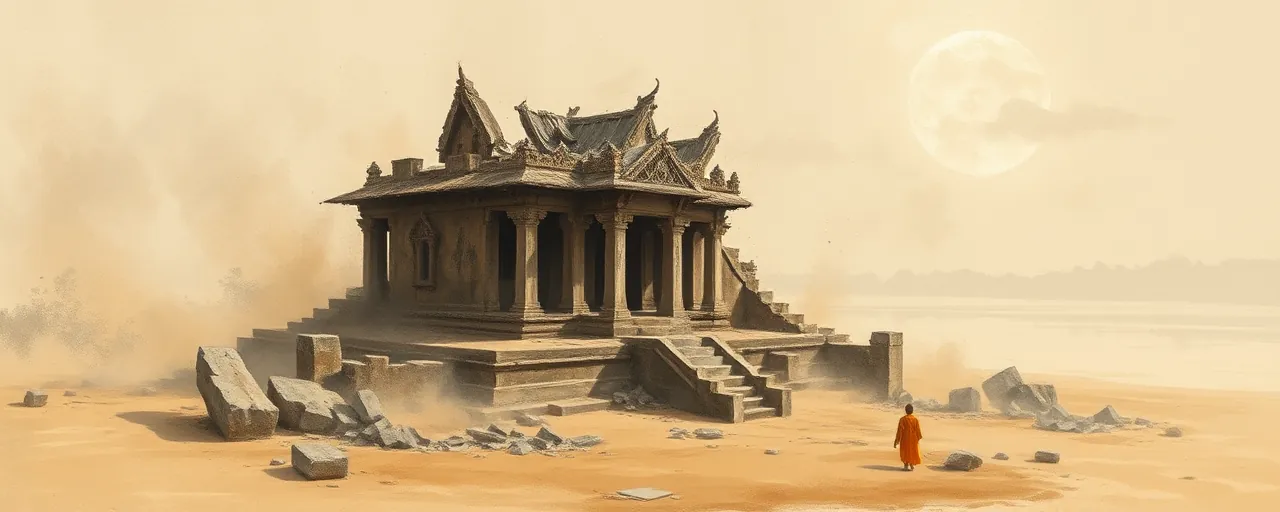A Cry From the Rubble
When the ground shook beneath central Myanmar on March 28, 2025, it didn’t just shatter buildings. It tore open wounds already festering from years of civil strife, exposing a nation on the brink. Over 3,300 lives lost, millions displaced, and a humanitarian crisis deepened by conflict, the 7.7 magnitude earthquake has become more than a natural disaster. It’s a desperate call for the world to act, not with finger-pointing or isolation, but with unwavering support for the people caught in the crossfire.
The images are haunting. Families sift through collapsed homes in Sagaing, children huddle in makeshift shelters without clean water, and aid workers dodge airstrikes to deliver scraps of relief. This isn’t just a tragedy of nature; it’s a failure of humanity, compounded by a military junta that clings to power while its people suffer. Yet, amid the chaos, a flicker of hope emerges, the Quad nations, alongside ASEAN, stepping up with over $20 million in aid and a promise to coordinate relief. It’s a start, but it’s not enough, not when lives hang in the balance.
Here’s where we stand. The United States, Australia, India, and Japan, united as the Quad, have a chance to lead with compassion, to prove that international cooperation can transcend politics and deliver real results. This isn’t about grandstanding or geopolitical chess moves. It’s about getting food, water, and medicine to people who’ve lost everything. And it’s about rejecting the tired playbook of punitive measures that only tighten the noose around the vulnerable.
The Power of Collective Action
Let’s talk numbers. The Quad’s $20 million commitment is no small feat, funding emergency medical teams, relief supplies, and partnerships with local groups who know the terrain. Add to that ASEAN’s Coordinating Centre for Humanitarian Assistance, a lifeline honed since the 2004 tsunami, and you’ve got a framework that’s saved lives before. Look back to Cyclone Nargis in 2008, when ASEAN bridged gaps the junta wouldn’t, or the 2004 Indian Ocean disaster, when the Quad’s roots took hold. History shows this works when the will is there.
But the reality on the ground is grim. Myanmar’s military has launched over 50 attacks since the quake, bombing the very regions they claim to protect. Roads are craters, hospitals are rubble, and aid convoys face gunfire. The junta’s temporary ceasefires are a sham, a PR stunt while they tighten their grip. Local organizations, brave and scrappy, dodge official channels to smuggle help through informal networks. They’re the unsung heroes, but they can’t do it alone.
Contrast this with the Quad’s approach. By working with ASEAN, they’re not just throwing money at the problem; they’re building a network that respects regional voices. Critics might scoff, arguing it’s too little, too late, or that it props up a flawed system. They’re wrong. Isolation and sanctions have choked Myanmar for years, leaving the junta unscathed and the people starved. Collective action, messy as it is, gets results, delivering aid where bombs and blockades fail.
The evidence backs this up. ASEAN’s Vision 2025 framework has cut economic losses across Southeast Asia by prioritizing resilience and partnerships. The Quad’s Humanitarian Assistance and Disaster Relief Partnership, launched after decades of collaboration, proves four nations can move faster together than apart. Myanmar’s crisis demands more of this, not less, a sustained push that outlasts the headlines.
Rejecting the Isolation Trap
Some voices, often cloaked in self-righteous rhetoric, insist on doubling down with sanctions or cutting Myanmar off entirely. They argue it pressures the junta, forces accountability. History begs to differ. Since the 2021 coup, punitive measures have piled up, yet the military digs in deeper, using starvation as a weapon while civilians bear the brunt. The earthquake’s aftermath lays bare the folly of this approach, 28 million people now reeling, their suffering a footnote to failed policy.
Sanctions sound tough, but they’re a blunt tool that rarely hits the target. Look at the data. Restricted access has crippled aid delivery to opposition-held areas like Sagaing, where the junta blocks supplies to punish defiance. Meanwhile, the generals sit comfortably, untouched by the chaos they’ve sown. Advocates for this strategy ignore the human cost, the millions without water or shelter, and call it collateral damage. That’s not principle; it’s indifference.
The Quad and ASEAN offer a better way. Their coordination group isn’t perfect, stumbling against junta roadblocks and fractured conflict zones. But it’s tangible, deploying medical teams and supplies where sanctions only deepen despair. This isn’t about coddling dictators; it’s about prioritizing people over politics. Those who cling to isolation as a moral stance need to explain why punishing the vulnerable counts as victory.
A Call to Build, Not Break
Myanmar’s earthquake isn’t just a moment; it’s a reckoning. The Quad’s $20 million and ASEAN’s pleas for ceasefires signal a path forward, one rooted in solidarity and pragmatism. This isn’t naive optimism. It’s a recognition that 3 million displaced and 3,300 dead demand more than symbolic gestures. The world has a choice, to amplify this effort with sustained funding and pressure for open aid corridors, or to retreat into cynicism and leave a nation to rot.
We’ve seen what works. The Quad’s legacy, from the 2004 tsunami to now, is proof that cooperation can cut through chaos. ASEAN’s growth, from a shaky alliance to a disaster-response leader, shows resilience is built, not imposed. Myanmar needs that now, a lifeline that outlasts the junta’s grip and heals a fractured land. The alternative, a slow bleed of sanctions and neglect, is no alternative at all. It’s surrender dressed up as strategy.
